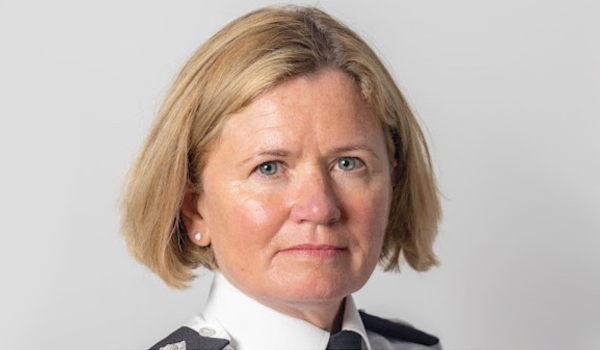First national threat assessment of VAWG crimes issued to police chiefs
Police chiefs have issued the first ever national threat assessment of crimes posing the most danger to women and girls.
A summary document, published on Thursday (May 18), outlines the greatest threats to women and girls. These are domestic abuse, rape and serious sexual offences, child sexual abuse and exploitation and technology-enabled VAWG such as online stalking and harassment.
The in-depth 230-page intelligence document has been shared with all forces by the National Police Chiefs’ Council (NPCC) and will not be made public due to the sensitive information included.
The NPCC says it is “a key step in the police response to violence against women and girls (VAWG) and will guide forces as they relentlessly pursue abusers and deliver justice and support for victims”.
Similar documents are used by police tackling national threats such as terrorism and serious organised crime. VAWG is now prioritised next to these crimes as a national threat in the recently updated Strategic Policing Requirement and is widely regarded as an “epidemic”.
Deputy Chief Constable Maggie Blyth, national policing coordinator for VAWG, said: “The epidemic of VAWG that we are facing meant that it was imperative we took the time to analyse the greatest threats to women and girls.”
The VAWG Strategic Threat and Risk Assessment (STRA) aims to support police forces to better understand the influences and levers that contribute to VAWG.
Forces will use the STRA to effectively target their resources and decide how many officers will be needed to tackle the rising rates of violent and sexual crimes faced by women. It will also be used to identify where they should focus specialist investigators, victim support and crime-fighting technology to tackle the problem.
The NPCC has warned that reporting of VAWG is expected to continue to rise in the coming year.
The STRA does not contain analysis on police-perpetrated violence against women and girls as that has been analysed separately as part of the performance report published in March.
Already underway are a range of activities designed to tackle this, including tightening of vetting procedures, a historic ‘data wash’ to identify any existing officers and staff who should be investigated, and work to root out abusers.
“We will be developing further insight into the ‘insider threat’ for the next STRA,” said the NPCC.
The STRA will be reviewed annually using data from across policing and insight from partner organisations such as the Crown Prosecution Service (CPS) and Police and Crime Commissioners.
Ms Blyth said: “All police chiefs have been given a copy of the STRA to help them make decisions in their own force areas about the best way to protect their communities. It allows chiefs to look ahead at future risks in terms of their ability to strategically plan and respond to VAWG.
“In order to have the right officers, trained to the right standards, and available at the right time, we are developing plans in conjunction with the College of Policing.
“This will support forces in ensuring that more officers are trained in public protection. There is an agreement that these crucial roles, which are often the most challenging and under-resourced, need to be accredited and properly equipped.
“Professionalising public protection will give officers the skills they need to do the job, understand the nuances of VAWG, and will attract a range of new people into policing. Police forces will then be better equipped to stop these terrible crimes.
“A national operating model for policing to tackle rape and serious sexual offences is being published next month as a result of the focused and rigorous work of Operation Soteria Bluestone. The findings showed that policing needs a capable, confident and reflective workforce, equipped with evidence-informed knowledge about the impact of rape and sexual offences on victims.”
Ms Blyth added: “The Government has recently announced the formation of a new taskforce to help enhance action against offenders of child sexual abuse and exploitation to protect children, including mandatory reporting for those who work with children and suspect abuse.
“Later in the year, in partnership with the CPS, we are publishing our joint justice plan to improve the criminal justice response to domestic abuse.
“The STRA clearly tells us that domestic abuse is an area of significant and increasing threat to women, so it is vital we act on that insight and ensure we are approaching the threat in a coordinated way.”
Roy Wilsher, His Majesty’s Inspector of Constabulary, said: “In 2021, we recommended that violence against women and girls should be added to the Strategic Policing Requirement. This was to ensure that VAWG was categorised as a national threat and there were clear expectations about how the police should tackle it.
“We therefore welcome the publication of the national threat assessment for VAWG, which will help forces understand the landscape and opportunities to tackle these crimes.
“Through our inspections, we will assess how well forces are considering the threat assessment, and how effectively they are working with local partners to make a tangible difference to the safety of women and girls in their communities.”
Following the publication of the STRA, the VAWG taskforce will be developing a VAWG model, using the four ‘P’ approach – a tool approved by the Home Office and the National Crime Agency – which will focus on the areas of ‘prevent violence against women and girls’, ‘pursue perpetrators’, ‘prepare policing’ and ‘protecting those at risk.’
It is hoped that this will be finalised in the coming months and will act as a roadmap for all police forces, giving them a framework in which to focus their resource, said the NPCC.


